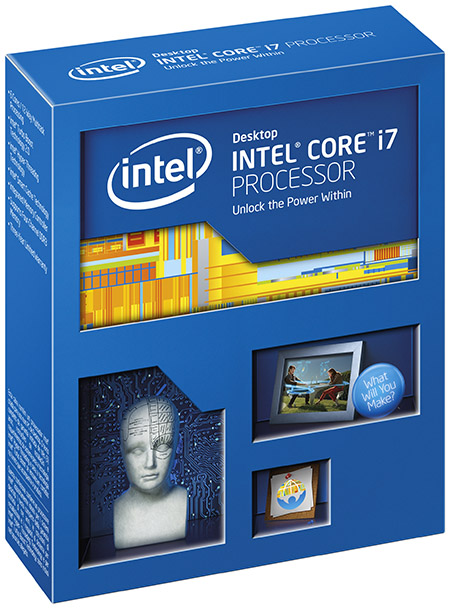Intel Core i7-4960X Review: Ivy Bridge-E, Benchmarked
Is Ivy Bridge-E An Enthusiast’s Salvation?
Does Intel’s Core i7-4960X, specifically, get me all revved up about upgrading? Well, no. Not really. But then again, those thousand-dollar CPUs rarely do. What about the Core i7-4930K replacing Intel’s -3930K for $550? That’d be a tough sell for all of the same reasons. Mainly, it doesn’t push performance high enough to warrant a big price tag. Any interest in a Core i7-4820K? I’d be more inclined to bet on a -4770K/Z87 platform, if only for the newer chipset’s extra functionality.
As far back as April of last year we knew that Core i7-3770K was somewhere between zero and seven percent faster than Core i7-2700K, depending on the workload. Is it really a surprise that Ivy Bridge-E would only be a few percent faster than Sandy Bridge-E? At least on the performance end, Core i7-4960X is close to what we might have expected.
Still, it would be cool to see Intel configure Core i7s with 10 or 12 cores, like some of the planned Ivy Bridge-EP models. Instead, it looks like we’ll be waiting for Haswell-E to see the first eight-core enthusiast-oriented processors. As a result, Intel is really limiting the appeal of Ivy Bridge-E to power users building or buying brand new PCs. The bummer there is the two-year-old platform with two SATA 6Gb/s ports and no native USB 3.0. That’s hardly going to get an enthusiast worked up when Z87 is so much more fully featured. If you already own a Core i7-3960X or -3930K, you’re simply not going to sink another big chunk into single-digit percent gains.
Should Ivy Bridge-E fail to encourage upgrades or new system builds, I know who’s going to absolutely love this new architecture: the server and workstation segments. For what little gets added to performance, Ivy Bridge-E does some crazy-awesome things to power and efficiency. When you multiply out the gains across a rack, you’re looking at a lot less power, a lot less heat, and a lot less cooling.
Consider this a parting shot: Core i7-4960X is faster than Core i7-3970X and simultaneously about 30% more efficient. In the world of Xeon E5-2x00 v2 processors, that’s going to be killer. Want some proof? Go check out Intel's 12-Core Xeon With 30 MB Of L3: The New Mac Pro's CPU?
Get Tom's Hardware's best news and in-depth reviews, straight to your inbox.
Current page: Is Ivy Bridge-E An Enthusiast’s Salvation?
Prev Page Power Consumption, Ivy Bridge-E’s Big Surprise-
Someone Somewhere Probably would have been nice to be 8-core. Isn't the actual die on these things just a cut-down 12-core chip? Think I read that somewhere.Reply
EDIT: Minor error:
surface alongside Haswell-based 9-series chipsets
Shouldn't that be Broadwell? -
designasaurus There's a rumor going around that Ivy-E is going to have a soldered heatspreader instead of using thermal paste. Obviously this would be a big differentiator for enthusiasts picking between Haswell and Ivy-E. Given your access to Ivy-E, do you guys at Tom's have any opinions on this rumor?Reply -
killerchickens I bet it overclocks like a beast. :)Reply
Lol now time to spend $1000 to save on my power bill. -
ingtar33 about all i'd expect. shame really, but it looks like the enthusiast market is at a standstill till AMD starts to compete again.Reply -
sna too early to judge...Reply
The 6 cores ivyBridge-e "K" version is the real thing.
and I dont get it , how Tomshardwae fails to say about the SandyBridge-e not having PCIE 3.0 support , while the ivy-E has PCIe 3.0 support . this is a Big factor here. -
ingtar33 Reply11172422 said:too early to judge...
The 6 cores ivyBridge-e "K" version is the real thing.
and I dont get it , how Tomshardwae fails to say about the SandyBridge-e not having PCIE 3.0 support , while the ivy-E has PCIe 3.0 support . this is a Big factor here.
they did say it. You didn't read the beginning of the review. Of course pci-e 3.0 is a gimmick and not a reason to buy a new 2011 mb and ib-e chip... and it will remain a marketing gimmick untill gpus can actually be bottlenecked by pci-e 2.0 x16... high end gpus barely bottleneck on pci-e 2.0 x8 atm... it will be a little while (another generation or 3) before gpus will NEED pci-e 3.0.
-
Someone Somewhere Replyofficial PCI Express 3.0 compliance (remember, Sandy Bridge-E only claimed 8 GT/s signaling support), and 22 nm manufacturing.
That's pretty much saying it did it unofficially.
Besides, you have to look hard to find something bottlenecked by PCIe2.0x8; even high-end GPUs won't run into bandwidth limitations. -
CommentariesAnd More WOW !!!!!!! So Intel is expecting someone to spend another 1000 bucks just for a 10-20% boost. Yay!!!!!!!! This is Ivy Bridge-E. I am getting it , YAY!!!!!!!!!!!!!Reply -
shin0bi272 still no gaming benchmarks eh? I guess I'll save my money and stick with my i7-920 for a little bit longer.Reply

